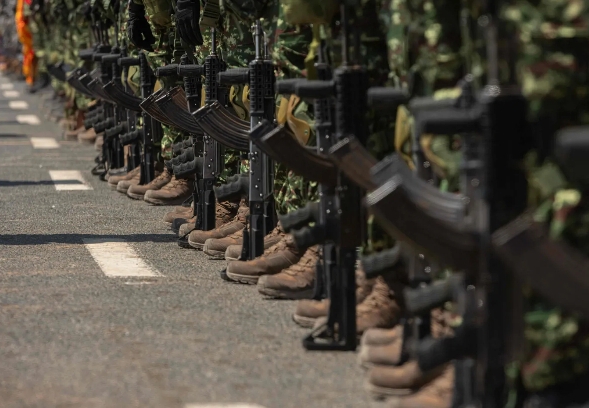Malawi and Mozambique signed a joint security deal to combat human trafficking and cross-border crime. Backed by SADC, the agreement includes military patrols and was praised by civil groups. Poverty and false promises remain key drivers of trafficking in the region.
Malawi, Mozambique Sign Agreement on Joint Military Operations to Combat Trafficking and Border Crime


Malawi and Mozambique have signed an agreement to conduct joint military exercises and patrols. The initiative, which is aimed at combating cross-border drug and human trafficking, was welcomed by civil society organizations and described as a “giant leap” forward.
The agreement was signed on Thursday by Malawi’s Minister of Defence, Monica Ching’anamuno, and her Mozambican counterpart, Cristovao Chume, in Mozambique’s capital, Maputo. The signing took place during the 16th session of the Mozambique-Malawi Permanent Joint Commission on Defence and Security (CCPDS). The joint initiative has been approved by the Southern African Development Community (SADC) as part of an integrated plan designed to strengthen defense and security across southern Africa and address the challenges of cross-border crime.
During the ceremony, both Malawi and Mozambique cited poverty and the urgent need for economic opportunities as major drivers of human trafficking in their respective countries. Ching’anamuno emphasized the importance of the agreement in addressing these issues, stating, “This agreement will therefore ensure that both countries are able to fight human trafficking and other crimes with tenacity using existing pieces of legislation.”
Rodrick Mulonya, chairperson of the Malawi Network Against Trafficking in Persons, told Anadolu Agency that despite ongoing efforts to tackle human trafficking in Malawi, the situation has reached critical and “alarming levels.” He praised the new agreement as a significant advancement in addressing the issue, while calling for more coordinated and comprehensive measures. “This agreement is therefore a giant leap in the fight against human trafficking. But there is a need for concerted efforts for us to win the fight. There is a need for closer collaboration between these two countries and indeed among all other countries in the SADC region for this fight to be won. We need to enforce a multi-sectoral approach,” Mulonya said.
He pointed out that poverty and pressing economic hardships have created a “fertile ground” for the worsening situation in the region. “Desperate people are being lured by false promises for a better life, which in the end turn out to be not real,” he added.
According to Africa Legal Aid, all member states of the Southern African Development Community have enacted anti-trafficking legislation. However, the organization notes that despite these legislative efforts, human trafficking continues to persist across the region, largely due to poverty and inadequate implementation of effective strategies.

 বাংলা
বাংলা  Spanish
Spanish  Arabic
Arabic  French
French  Chinese
Chinese 
